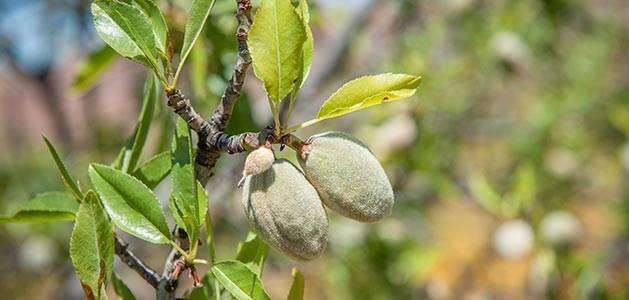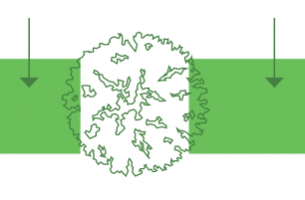Adequate Potassium Helps Almond Trees Resist Drought Stress
Potassium (K) is vital for many essential growth processes in almonds, including its ability to support a tree’s natural defenses. That’s especially beneficial when water supplies are low and trees may be drought-stressed.
One of the key functions of potassium is to promote root health and strength. If trees are deficient in potassium, their roots may be less able to absorb water, making them more subject to stress when moisture is in short supply1. Even in dry years, higher K concentrations in the soil solution help to:
- Support root efficiency
- Stimulate water uptake
- Maximize nutrient delivery
Reducing moisture losses.
Protassium+® sulfate of potash (0-0-50-17S) also helps drought-stressed plants lower the amount of water lost through the leaves.
The stomata (tiny pores) in tree leaves regulate the exchange of oxygen, carbon dioxide and water vapor between the plant and the atmosphere, which is essential for photosynthesis, plant health and other functions. The efficient opening and closing of the pores are affected by the levels of potassium in the plant, and if K supply is low, the stomata are slow to respond. That means the pores take longer to close, and then valuable moisture naturally escapes through the leaves2.
In drought situations, the pores normally close more tightly as a defense mechanism to conserve water and minimize stress, but they don’t work as well if suffering from a K deficiency.
Your K source matters.
To maximize yield potential in dry years, it’s clearly important to have sufficient K in your soil. Your choice of potassium can also affect the risks of crop stress. Because almonds are highly chloride-sensitive, it’s safer to apply a potassium fertilizer such as Protassium+ premium sulfate of potash, which is virtually chloride-free. It also has the added fertility benefit of sulfate sulfur, which is immediately available for uptake by the plant, unlike other sulfur sources such as elemental or organic. Other K sources can be high in chloride, which actually decreases efficient nutrient uptake by plant roots.
1 International Plant Nutrition Institute.“Functions of Potassium in Plants." Better Crops With Plant Food, vol. 82, no. 3, 1998, pp. 4.
2 International Plant Nutrition Institute. “Potassium Reduces Stress from Drought, Cool Soils, and Compaction." Better Crops With Plant Food, vol. 82, no. 3, 1998, pp. 34-35.





